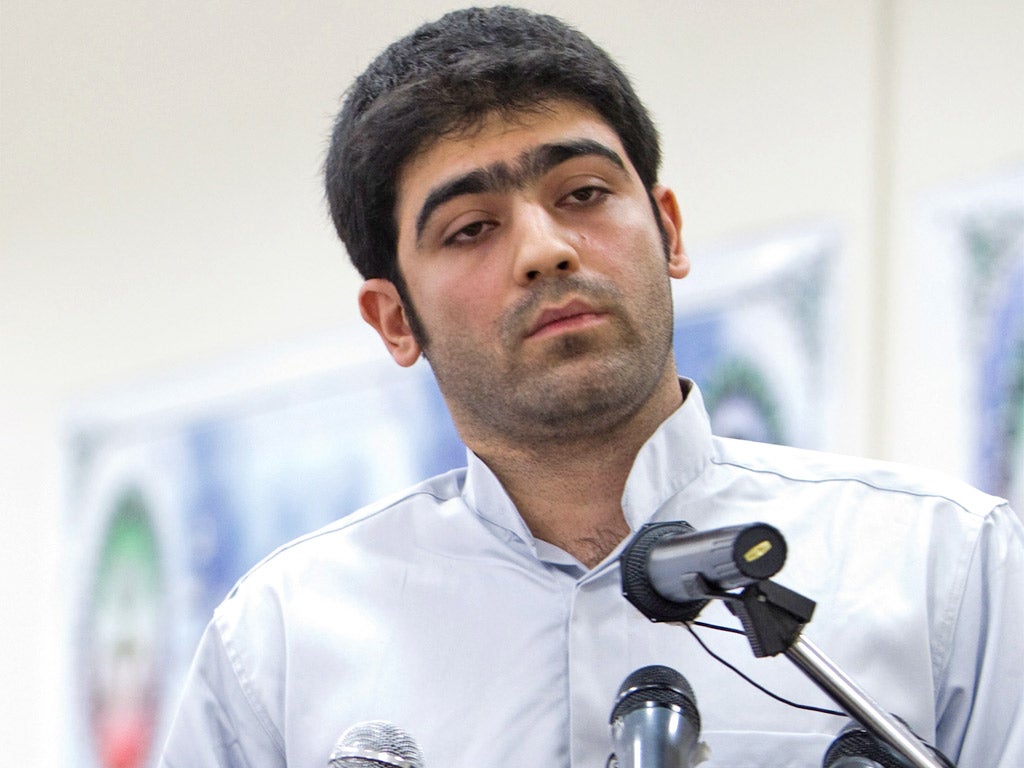Iran hangs 'Mossad spy' Majid Jamali Fashi for killing scientist
Tehran claims United States and Israel were behind attack designed to disrupt its nuclear plans

Your support helps us to tell the story
From reproductive rights to climate change to Big Tech, The Independent is on the ground when the story is developing. Whether it's investigating the financials of Elon Musk's pro-Trump PAC or producing our latest documentary, 'The A Word', which shines a light on the American women fighting for reproductive rights, we know how important it is to parse out the facts from the messaging.
At such a critical moment in US history, we need reporters on the ground. Your donation allows us to keep sending journalists to speak to both sides of the story.
The Independent is trusted by Americans across the entire political spectrum. And unlike many other quality news outlets, we choose not to lock Americans out of our reporting and analysis with paywalls. We believe quality journalism should be available to everyone, paid for by those who can afford it.
Your support makes all the difference.Iran has hanged a 24-year-old man whom it accused of being an agent for the Israeli intelligence agency Mossad and of killing one of its nuclear scientists more than two years ago, Tehran's state media reported yesterday.
The execution of Majid Jamali Fashi at Tehran's Evin Prison followed his conviction last August for murdering a Tehran University professor, Massoud Ali-Mohammadi, in January 2010.
State media said he had confessed to the crime, and reported at the time that the professor, 50, was killed when a remote-controlled bomb attached to a motorcycle was detonated outside his home in the north of the capital.
Iran accused the United States and Israel of being behind the attack, but Washington denied any involvement. Israel routinely refuses to discuss such accusations, which have since been levelled over the deaths of three more scientists.
The most recent attack claimed the life of Mostafa Ahmadi-Roshan, a deputy director of the Natanz uranium enrichment facility, who was killed in January this year by a magnetic bomb planted on his vehicle.
Iran's state media also recently announced that another "Zionist-regime-linked" conspiracy to murder an Iranian "specialist" had been foiled, with 15 people, including both foreigners and Iranians, arrested on suspicion of having participated in the alleged plot.
It is unclear what role, if any, Professor Ali-Mohammadi had in what Israel and the West are convinced is Iran's effort to acquire a military nuclear capability. Iran's Atomic Energy Agency denied at the time that he had any involvement in the nuclear programme, which the regime insists is for peaceful purposes.
The Tehran-based satellite channel Press TV said that Mr Fashi – believed to be an Iranian citizen – had confessed to receiving training from Mossad, of being given $120,000 (£75,000) to carry
out the killing, and of using forged documents, handed over in Azerbaijan, to allow him to travel to Tel Aviv.
The execution came amid talks in Vienna between Iranian diplomats and the International Atomic Energy Agency (IAEA), which is pressing for greater access by UN inspectors to documents, officials and sites which might shed light on the suspected military aspects of Iran's nuclear programme.
These include the Parchin military complex where Western diplomats are concerned Iran may have conducted nuclear-relevant high explosives tests. Iran has repeatedly resisted requests to open up the site.
A significant improvement in access would be seen by the West as a sign of Iranian good faith ahead of the next scheduled big power diplomatic talks in Baghdad next week between Iran and the US, Britain, France, Germany Russia and China.
In a break in the discussions, Ali Asghar Soltanieh, Iran's ambassador to the IAEA, sounded an upbeat note saying: "We had good talks. Everything is (on the) right track. The environment is very constructive."
Meanwhile in India, which along with China is the world's biggest importer of Iranian oil, officials agreed in talks with the US special envoy Carlos Pascual to continue reducing the volumes it buys from Tehran, but without giving a detailed timetable or target levels.
Join our commenting forum
Join thought-provoking conversations, follow other Independent readers and see their replies
Comments